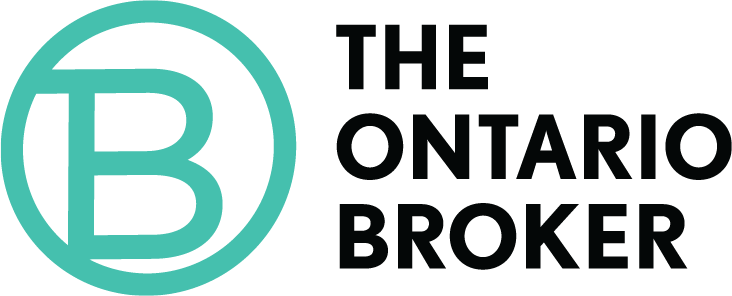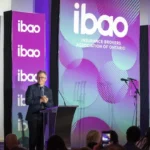
TREVOR WILL INEVITABLY BECOME A POLITICIAN. YOU HEARD IT HERE FIRST.
His accomplishments, advocacy and eloquence won him IBAO’s Diversity Leader Award of Excellence, and I can’t think of anyone more deserving. Trevor’s dedication to all things diversity, equity and inclusion highlights his activism and belief that as the world changes, the insurance industry needs to change with it.
NEVER IN A MILLION YEARS
Like many insurance professionals, Trevor wasn’t planning a career in this industry. Quite the opposite. As a twenty-something, he was a flamboyant hipster, everything fluorescent and pierced. Beginning his career in the fashion world, he eventually landed a job with AgriCorp providing provincial insurance to farmers in rural Ontario. While Trevor assumed he’d encounter a lot of intolerance, what he found was a welcoming community. He realized that insurance is about helping people—when it’s done well, you feel fulfilled, and he found that opportunity in insurance.
Trevor moved from AgriCorp to TD Bank to BrokerLink, where something shifted.
“Behind the manager who interviewed me at BrokerLink was a picture of his family—he had a husband and children. I’d never seen that in corporate jobs I’d had before. It was so normalized. I was used to toning down my individuality. But I realized that being part of the suit and tie boys club was suppressing my potential and I have that interview to thank for coming to the realization.”
DREAM GIG
Trevor says he always knew he’d work for Zensurance.
“From BrokerLink I moved to Intact where I met our Zensurance CEO, Danish Yusuf, during a business pitch. I fell in love with what they were trying to do. Having spent a lot of time in brokerage offices, I knew people talked about innovation, but I wasn’t seeing a lot of it around me. Danish had a very strong vision—I like to say I moonlighted as Head Cheerleader for Zensurance back then.”
Trevor and Danish connected for coffee and ended up talking culture and people development. In 2019, he was offered a role as Head of Talent, Success and Culture. He was the 27th hire. The Zensurance team is now over 200 people and Trevor’s grown his operations function to a 12-person team.
“Zensurance has given me the platform to pursue a lot of the initiatives that have made me considered for awards and nominations like this one.”

MODERNIZING TRADITION
In his early days at Zensurance, Trevor wanted to make impactful changes, starting with their benefits package.
“We looked for added value and unique differentiators. Many of our employees are in that stage of life where they’re thinking about starting a family. We implemented a four-month parental leave, topping up salaries 75%. It’s totally inclusive, covering all types of families—adoption, same sex partners, cisgender hetero couples. Even if you marry into a family and are adopting older children, we want you to have time to build meaningful relationships. We’re very open-ended on who can access the policy and how. We leverage benefits to retain employees and showcase that diversity, equity and inclusion are foundationally incorporated into everything we do.”
TAKING A NEUTRAL STANCE
One of the initiatives I’m most impressed by among Trevor’s many accomplishments is the implementation of gender-neutral washrooms at their office.
“When I first joined Zensurance, I connected with everyone to understand what our demographics were. A few folks brought up the need for more gender inclusion in the way we do things—there was a real push to get ahead of the curve.
“The first thing we did was assess our space to see how accessible it was for people on the gender spectrum. We’re on a shared floor so we approached our neighbours at the time to ask if we could implement gender-neutral washrooms. They were immediately on board. When the building’s management company got involved, there was a bit of friction, but they ultimately agreed to designate gender-neutral bathrooms on the main floor and had the appropriate signage created.
“When we approached IBAO that year about hosting an after party at Convention, we wanted to show our employees how serious we were about opening the door for gender neutrality. At the bar we rented out, we shut down the men’s washrooms and turned the women’s washrooms into a gender-neutral facility for everyone to use. It pushed people out of their comfort zones and was a great opportunity to bring something like gender-neutral washrooms to the broker community, creating exposure for brokers from smaller, rural areas who might not normally have it.”
FROM THE GROUND UP
Zensurance has a very diverse team in many senses—gender, race, sexual orientation, culture. When Trevor and I connect for this interview, I wonder aloud whether their recruitment strategy intentionally attracts diverse talent or if it happens as a result of being a Toronto tech start up.
“We’re very intentional about recruitment. We know instinctively and innately that diversity’s the way to go, that building inclusive processes and procedures will propel us forward. I remember my first week at the company, it was immediately apparent that to succeed and grow as a business we needed good values in place. We came together as an organization to establish what those were. When we build out policies, when we think about talent acquisition strategies, we incorporate these values into those conversations so people realize how serious we take them.
“Our CEO Danish brings a lot of diversity to the table. Another layer of the intersectionality of his experience is not only that he’s a person of colour, but he’s relatively new to insurance. He shows up for our DEI initiatives by providing financial backing so we can bring them to life. We’ve been able to attract diverse talent using our values and company culture as a recruitment tool. Emerging talent—the Gen Zs —have grown up talking about diversity, equity and inclusion. If you want to attract these folks to your organization, to become the future of your business, you need policies and procedures in place that jive with what they’re looking for.”
Well said.
PUTTING YOURSELF OUT THERE
Growing up queer in a small town outside Toronto had its challenges. When Trevor was younger and started understanding how he was different, he leaned on fashion to express how he was feeling.
“I started making my own clothes in grade six, got my lip pierced in grade seven, rocked pink dreads in grade eight. From an early age, I was an easy target. Things changed a bit when I found a more inclusive community. It was an empowering experience, stepping into who I was, which led me to where I am today—with a platform to advocate for diversity, equity and inclusion.
“Don’t get me wrong, there are still moments that make me shake my head. I posted an engagement photo of my partner and I on LinkedIn recently. I received so many messages filled with hate and disapproval. I was deleting a hundred messages every day—whether it’s appropriate for a man to be with another man, whether or not I was going to hell. LinkedIn is perhaps not the most appropriate place to post a life update, but I wanted to be visible.
“On the flip side, there were just as many messages saying people hadn’t seen anyone share a picture of their same-sex partner on LinkedIn before. They felt seen and inspired. It was a good reminder that I live in a bubble, working for a progressive tech company where it’s essentially cool to be in a same-sex relationship. That experience made me realize how much work we still have to do. There are many ways I want to play a role in progress, but first and foremost I want to use my platform to continue promoting awareness around inclusion.”
BEYOND GESTURES
While Trevor supports any and all efforts in the diversity, equity and inclusion space, he’s quick to highlight the problems that exist.
“It’s not just about Pride Month where you decorate everything with a rainbow and check it off the list. If you ask corporations who advertise for Pride whether their health benefits cover transitioning or health supplements for people transitioning or things that truly impact people’s lives, it’s typically no. But part of what’s so important in the DEI space is for people who have different life experiences to be able to access those kinds of benefits.
“In the industry, we’re certainly seeing more gender diversity at the top, which is a step in the right direction. But very often leadership teams are still a sea of white. It’s a big issue. We need to create opportunities for people to pursue a career path in insurance and move into senior roles. It starts at the grassroots level, creating access for people from marginalized backgrounds and communities. That’s what our scholarship program with Humber College is about—we provide financial support to a member of an equity seeking group. It’s an opportunity for students of colour considering a career in insurance. We not only want to create new opportunities, we want to show our employees we put money where our mouth is. We talk about DEI in insurance—this is one way we can help create opportunities for those who might not have them.”

STARTING FROM SCRATCH
While Trevor’s worked to redefine his brokerage’s principles and policies, he says those just starting out don’t need to follow that same path. It’s more about getting the wheels in motion.
“If you don’t know where to start, or you’re from a small community where you don’t see a lot of diversity around you, there are lots of things you can do to show your employees what DEI means to your business. Connect with a cultural organization and offer career conversations or mentorship opportunities. You won’t see the ROI immediately. You won’t have a flood of diverse applicants, but smaller actions will slowly gain momentum. Building relationships with community organizations is a great way to do that. Provide development opportunities to your team if it’s something they’re interested in. A lot of it is talking the talk, and then showing your employees what you’re doing about it.”
SHARED PRIDE
As we close our interview, Trevor shares a touching, personal story, so I’ll do the same.
Trevor’s mother passed away at the end of November. She’d been diagnosed with cancer and underwent very aggressive surgery as a result. Trevor went on leave to support her through the process. Before the surgery happened, he mentioned he was nominated for IBAO’s Diversity Leader Award of Excellence.
“I told her—when you’re in the hospital, we can watch the awards ceremony together. It’s online. But then with everything going on, I forgot about it. The second day after her surgery, she couldn’t talk. It was the afternoon of the awards show, and she grabbed my hand and wrote award on it. I’m so thankful she did. We watched it together. It was such an incredible moment, such a blessing. She passed away quickly and unexpectedly a few days later. Having that moment together when they announced my win—she was so proud. It was a beautiful experience. It was the proudest moment I could have shared with her.”



